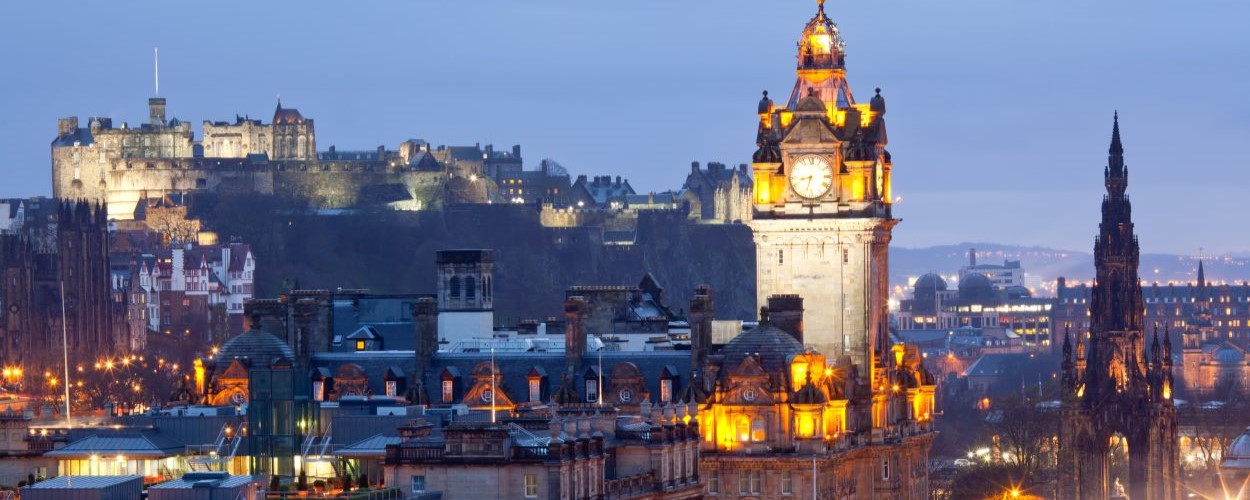Global climate crisis
Engaging small businesses in the race to net zero
The ever pressing need to address the global climate crisis will come into sharp focus this year when the UK hosts the UN Climate Change Conference (COP26) in Glasgow this November. Ahead of the conference, the UK Government has set a target to reach net zero carbon emissions by 2050, a major indicator that the country is serious about confronting the effects of harmful emissions and mitigating against the spectre of an impending climate catastrophe.
In 2019 the UK became the world’s first major economy to enshrine a net zero target in law. Legislation now requires the Government to oversee a 100% reduction in the country’s net carbon emissions by 2050, relative to 1990 levels, thereby making the UK a ‘net zero emitter’. Net zero status is achieved when carbon emissions are effectively cancelled out by implementing equivalent carbon reduction practices over a specified period.
As the host nation of COP26, the Government is promoting the UK as a pioneer in the fight against climate change, and the route to achieving such kudos puts businesses front and centre as they begin to take bold actions in reducing their CO2 outputs.
There is widespread acknowledgement that large businesses are ‘the big emitters’, having vast carbon footprints compared with their smaller counterparts, owing to expansive production plants and high energy demands. The most polluting sectors are manufacturing, steel production, energy and transportation. However, the pathway to net zero requires major interventions across all industries, with urgent action from businesses of all sizes.
While large firms have been developing sustainability programmes for some time, many small and medium-sized enterprises (SMEs) are yet to determine how they too can have a meaningful impact. No matter how small, all businesses produce carbon emissions, most often through their buildings, vehicles or supply chains. Broadly spread, their contribution to emissions is significant. Businesses account for a quarter of all UK territorial emissions, with just under half originating from SMEs, so there is undeniable evidence that these firms play a vital role in shifting UK industry towards net zero.
Joining the race to net zero
The Government believes that committing to net zero enables SMEs to grow their operations, reduce operating costs, and make themselves more attractive to clients, investors and employees. To help them take positive action, the Government has launched a campaign enabling SMEs to measure and reduce their CO2 outputs ahead of 2050. This topic was highlighted in a sustainability webinar hosted by TheBusinessDesk.com in May, during which Catherine Westoby, the Government’s Net Zero Business Engagement Lead, explained how SMEs can act on net zero, becoming part of the green revolution.
Catherine spoke of the need for widespread engagement amongst small firms, encouraging them to sign up to the UN’s global Race to Zero campaign, which is pushing for ‘a healthy, resilient, zero carbon recovery that prevents future threats, creates decent jobs, and unlocks inclusive, sustainable growth’.
Across the country, small and micro firms account for a surprisingly high proportion (over 99%) of all businesses, a striking fact which clearly puts SMEs centre stage in the Government’s drive towards a net zero future. Government-backed research shows that small businesses understand the problems associated with climate change, but all too often do not know where to start, so targeting them is now
a major priority. This is being carried out through the UK Business Climate Hub, a dedicated online platform which aims to make net zero meaningful, supporting businesses to take up specific actions to reduce their emissions.
The portal encourages businesses to sign up to the ‘SME Climate Commitment’ which recognises the threats of climate change to the economy, nature and society at large, and commits them to:
- Halve their greenhouse gas emissions before 2030
- Achieve net zero emissions before 2050
- Disclose progress on a yearly basis
Once the commitment is signed, SMEs are provided with tools to help them understand their emissions, how to tackle them, and the best ways to share what they are doing among their customer base and wider communities.
Implementing carbon reduction measures in SME settings
Journeying towards carbon neutral status can be overwhelming for small business owners, with many struggling to make headway. Measuring current levels of emissions using an online calculator, such as the Carbon Trust’s Carbon Footprint Calculator, is a good place begin. Based on rudimentary results, businesses will be in a position to pinpoint their heaviest carbon producing activities and work to reduce or eliminate them where feasible.
Steps along the way will vary between sectors and depend of multiple factors, such as reliance on energy for manufacturing, transportation, and the upkeep of physical premises. When carbon reduction measures have been identified, businesses can prioritise actions, set specific goals and monitor their achievements.
Interventions which are relatively simple to enact include:
- Switching to renewable energy suppliers and contracts
- Adjusting heating and cooling systems
- Wholesale replacement of incandescent bulbs with LED lighting
- Investing in on-site renewables, such as solar panels
- Installing smart meters and benefiting from real-time energy consumption insights
- Insulating buildings
- Introducing cycle to work schemes
- Electrifying vehicle fleets and installing electric vehicle charging points
- Renting or sharing existing assets with other businesses
- Factoring in the net zero practices of producers and suppliers
Once all reasonable carbon reduction measures have been explored and implemented, businesses falling short of net zero will need to consider offsetting practices, engaging other mechanisms to account for residual emissions. These can include planting trees, which absorb carbon from the atmosphere, or investing in renewable technologies elsewhere, such as wind or solar farms, biomass generation plants or reforestation projects.
As the race to net zero gathers pace, and with COP26 looming, continued pressure is likely to bear down on small businesses to play their part. Early adopters will be one step ahead of any future legislation requiring works to be undertaken at short notice. While some interventions will be more challenging than others, they are all likely to pay dividends in the long-term.
Perhaps the most important consideration for SMEs is that reducing carbon emissions is about much more than just meeting a Government target. Solar panels lead to increased profits, well insulated buildings are more comfortable for staff, cleaner air promotes improved health, and the natural environment will ultimately be better protected for future generations.



